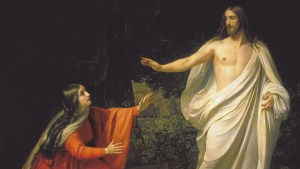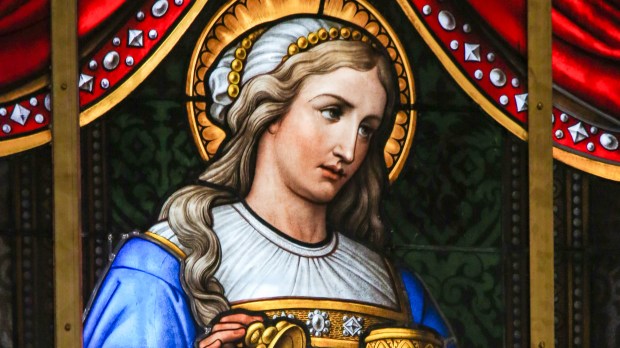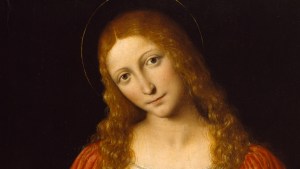While in 2016 Pope Francis elevated the current celebration of St. Mary Magdalene in the liturgy to a “feast” day, in the past the Church gave it even more attention.
Feasts are the second highest liturgical rank, and feature the recitation or singing of the Gloria.
This hymn highlights the “jubilant” theme of the celebration and is included on all feasts and solemnities, including Sundays.
However, one part of the liturgy that is currently reserved only to solemnities and Sundays is the recitation of the Creed (“I believe in one God …”).
Yet, for many centuries the Church recited the Creed on the feast of Mary Magdalene!
The St. Andrew Daily Missal in 1954 confirms this custom.
Then, when like the spouse in the Canticle, she went to find where they had laid her Divine Spouse, Christ called her by her name, and gave her the mission of telling His disciples of His Resurrection. This is probably why the Credo is said today as in the Masses of the Apostles.
Father F.X. Lasance also relates this in a 1945 Missal.
The Greeks give to her the title of ‘like unto an apostle’ because she first announced to the world and to the apostles themselves the resurrection of the Lord. For this reason the Credo is said in the Mass today, as in Masses of the apostles.
It appears that because she was the “Apostle to the Apostles,” she was formerly given a liturgical feast that featured the Creed, honoring her role as the first to announce the joyful message of Easter.
While the current liturgical feast does not contain that particular feature, it is good to see her feast restored to prominence.



